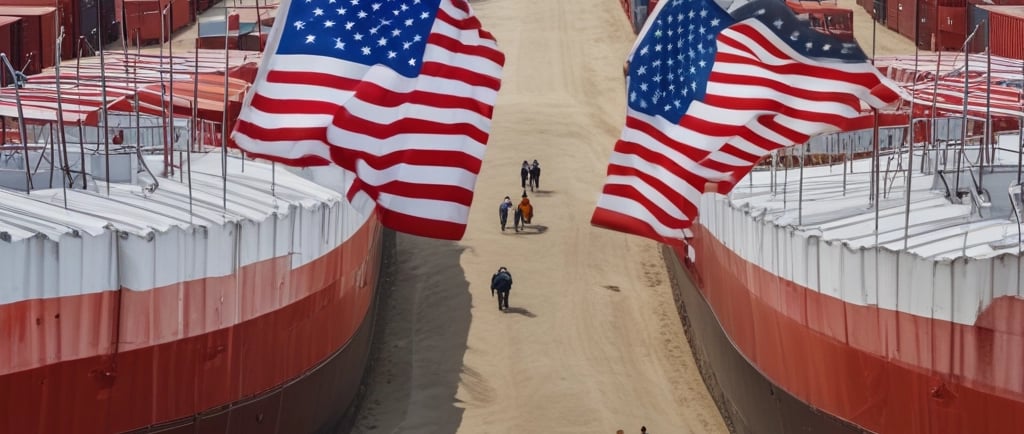US-South Korea Trade Talks Abruptly Postponed: US Treasury Secretary's Urgent Schedule, August 1st Tariff Deadline Looms!
7/24/20252 min read


SEOUL (July 24) – High-level trade talks between the United States and South Korea, originally scheduled for this Friday in Washington, have been suddenly postponed. According to Reuters and other media outlets, the cancellation of this "2+2" ministerial meeting is due to an "urgent schedule conflict" for U.S. Treasury Secretary Scott Bessent. This unexpected development undoubtedly adds further uncertainty to the looming August 1st tariff deadline.
Why Were the Talks Suddenly Called Off?
The highly anticipated "2+2" meeting was slated to bring together South Korean Deputy Prime Minister and Finance Minister Koo Yun-cheol and Trade Minister Yeo Han-koo, with U.S. Treasury Secretary Bessent and USTR Jamieson Greer. The aim was to address punitive tariffs imposed by the U.S. on South Korean goods.
However, just about an hour before South Korean Finance Minister Koo Yun-cheol was set to depart for Washington, the South Korean side received notification from the U.S. about the postponement. South Korea's Ministry of Economy and Finance stated that the U.S. expressed multiple apologies for the delay and clearly indicated a desire to reschedule the talks as soon as possible. Koo Yun-cheol subsequently canceled his planned trip to Washington.
August 1st Tariff Deadline: South Korea Faces a Critical Test
The postponement of these talks comes as the August 1st deadline for the U.S. to impose 25% "reciprocal tariffs" on South Korean goods rapidly approaches. These "reciprocal tariffs" were originally set to take effect on April 9 but were suspended by President Trump for 90 days to allow for negotiations. The suspension was later extended until the current August 1st deadline.
This means that if a deal is not reached before then, starting August 1st, the U.S. will levy an additional 25% tariff on more South Korean goods, on top of existing duties on auto and steel imports. This would be a significant blow to the export-driven economy of South Korea, Asia's fourth-largest economy.
Japan-US Deal Adds Pressure, South Korea Faces Greater Challenges
Just earlier this week, the United States and Japan announced a "massive trade agreement," which Trump claimed would further open Japan's markets, including sectors like automobiles and agricultural products. This development has undoubtedly increased the negotiation pressure on South Korea, which has yet to resolve its tariff issues.
Some analysts believe that the postponement of these talks might make it more challenging for South Korea to reach an agreement before the deadline, especially with the uncertainty surrounding U.S. Treasury Secretary Bessent's schedule. Reports suggest Bessent might accompany President Trump on a visit to Scotland from July 25-29, making a reschedule of the "2+2" meeting before August 1st seem almost impossible.
Despite this, other South Korean officials, including Trade Minister Yeo Han-koo and Industry Minister Kim Jung-kwan, remain in Washington for separate bilateral meetings. Sources reportedly indicated that South Korea had planned to propose an investment package worth up to $100 billion in these talks, hoping to avert the tariffs from taking effect.
The sudden postponement of these U.S.-South Korea trade talks casts a shadow over an already tense trade relationship. As the countdown to the August 1st tariff deadline continues, can South Korea find a solution to prevent a full-blown trade escalation? We will continue to monitor the situation closely.
